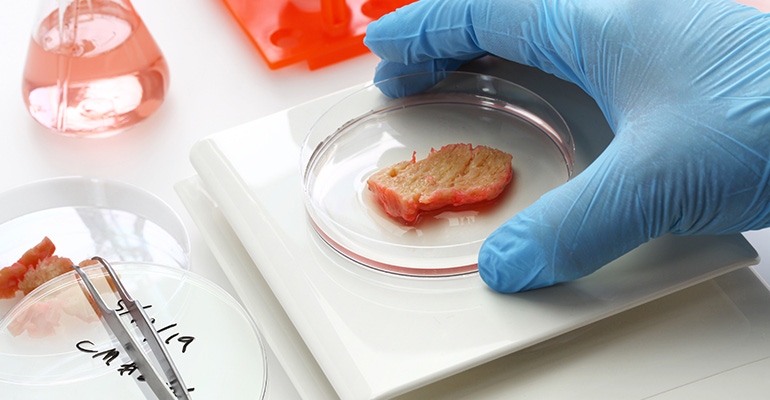Each day at 5 p.m. we collect the five top food and supplement headlines of the day, making it easy for you to catch up on today's most important natural products industry news.
December 17, 2021

We read the public comments on cell-cultured meat labeling so you don't have to
Environmental groups, cell-cultured meat startups and nonprofit groups all weighed in on the USDA’s list of questions regarding labeling standards for cell-cultured meat and poultry products. The Spoon rounds up some top answers to questions such as whether these products should be considered "meat" products, and whether the agency should create unique labeling requirements for cell-cultured meat and poultry products. Overall, the dramatic differences between different commenters’ visions indicate the need for a clear and empirically supported framework; one that is built on a realistic understanding of consumers’ needs, and that protects companies’ rights to truthful commercial speech.
Facing labor shortage, Tyson to ramp up automation in processing plants
Tyson’s chief executive has stated that the company will invest more than $1.3 billion over the next three years in automation. Meatpacking work is still largely done by humans because of the delicate and tricky processes involved; however, Modern Farmer writes that these operations' role as COVID-19 hotspots throughout 2020 has led meatpackers including Tyson to invest in technology that would mitigate this in the future. Tysonreportedly expects to “reduce labor costs” and boost production thanks to automation, with total savings amounting to about $450 million by 2024.
Climate change is making nights warmer, and crops may never be the same
Civil Eats reports that overnight temperatures are reaching record highs and sparking concern about human health and ecosystem impacts; the night minimum temperature of the contiguous U.S. has increased by 2.6 degrees Fahrenheit over the 1901-2000 state-wide night temperature mean. This could have an even worse impact on key crops including corn, wheat and rice than high day temperatures, although research is not as robust in this area. A plant’s system is tuned for a certain set of temperatures—and now that the world is changing on them, they will have to somehow reconfigure the internal calculations they've relied on for millennia.
How DoorDash and Postmates make an already dangerous job worse
This Eater articles dives into the pitfalls of the gig worker economy and being assigned independent contractor status, from customer abuse to a stark lack of benefits to tip theft. Throughout the pandemic, companies including DoorDash and Postmates were able to use expensive and sophisticated propaganda to confuse voters on legislation that would otherwise protect gig workers to the degree that other types of employees are protected. Barring future policy changes, the elements of delivery worker jobs will continue consisting of the following: “nasty weather, dangerous encounters with cars, and long hours for wages and tips that can fall well below the minimum wage.”
Decolonizing the GMO debate
Are GMOs an important way to feed our ever-growing population or an avoidable threat to health, culture and the environment? Recent articles that contend efficiency, quantity and scale are the most important features of a food system "rest comfortably on a century-old production-focused ideal that itself relies on colonial relations, export market metrics, and certain types of oppressive knowledge production," per The Counter. GMO advocates frame the issue first as a matter of scientific literacy rather than one related to food justice or sovereignty, which omits certain key voices from this important national (and global) conversation.
About the Author(s)
You May Also Like


